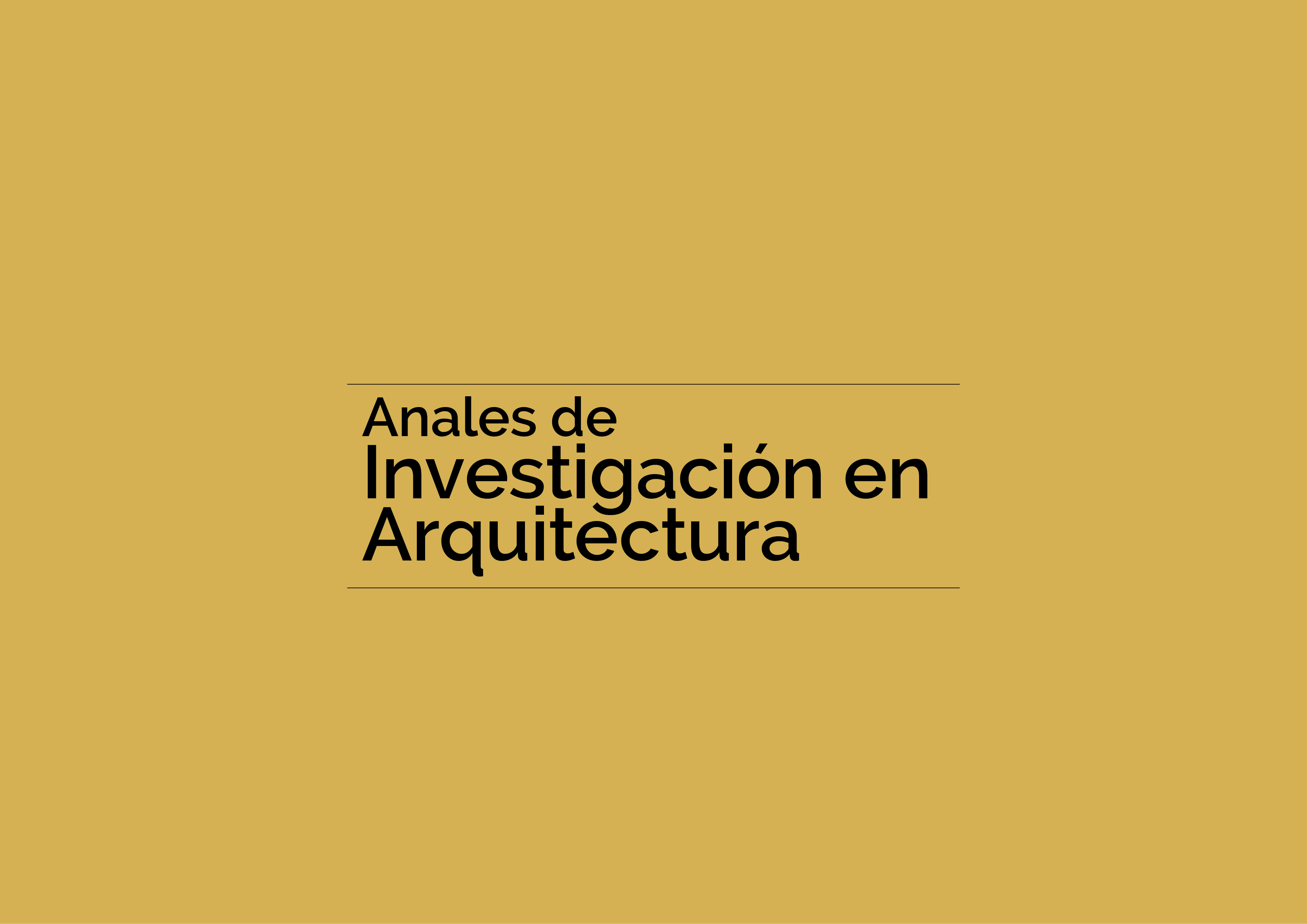A critical questioning of architecture's capacity as an agent of change
DOI:
https://doi.org/10.18861/ania.2024.14.2.3909Keywords:
Epistemology of architecture, architecture education, critical thinkingAbstract
The approach of this paper is theoretical and critical. Through an analysis of key authors and concepts, a reflection on complex systems and their relationship with architecture is constructed. In addition, the importance of critical consciousness and complex thinking is considered. This analysis is complemented with questions about the role of the architect and architectural education in Latin America, seeking to link theory and praxis in a situated context. A paradigm shift is proposed in the theory and practice of architecture, oriented towards a critical and reflective consciousness that recognizes its transformative role, seeking to develop a theoretical approach to architecture from the perspective of complexity, integrating anthropological, social and cultural dimensions from a Latin American perspective.
Downloads
References
Alexander, C. (2016). Making the Garden. Firstthings.Com. https://www.firstthings.com/article/2016/02/making-the-garden
Alexander, C. (2019). El modo atemporal de construir. Logroño: Pepitas de Calabaza.
Asimov, I. (2017). Preludio a la fundación. Barcelona: Debolsillo.
Bofarull, P. P. (2003). La necesidad de una arquitectura crítica Teoría de la arquitectura desde la perspectiva fenomenológica-hermenéutica [Universidad de Barcelona, tesis doctoral]. https://www.tesisenred.net/bitstream/handle/10803/402939/PPB_TESIS.pdf?sequence=1&isAllowed=y
Borda, F.; Fals, O. & Moncayo, V. (2009). Una sociología sentipensante para América Latina. México, DF: Siglo XXI Editores.
E. Ruíz, S. (1983). La teoría de la arquitectura como conciencia de la práctica arquitectónica. Revista Autogobierno: arquitectura, urbanismo y sociedad 2. 3–5.
Facultad de Arquitectura - Autogobierno. UNAM. (1983, October). Por una nueva teoría. Revista Autogobierno: arquitectura, urbanismo y sociedad 2. 1–2.
Flores, E. O. (2016). Hacia un hábitat para el buen vivir. Andanzas compartidas de un caracol peregrino. México DF: Rosa Luxemburg Stiftung.
González Lobo, Carlos. (2007). "Hacia una teoria, del proyecto arquitectónico". (Tesis de Doctorado). Universidad Nacional Autónoma de México, México. Recuperado de https://repositorio.unam.mx/contenidos/95484
Lechuga, E. A. L. (2021). Entrevista a Gustavo Romero Fernández. (Tesis de maestría) Universidad Veracruzana.
Malevich, K. (1994). Manifiesto suprematista Unovis. En Textos de arquitectura de la modernidad. Madrid: Nerea, pp. 220–221.
Meisegeier, J. (2002). Eike: indignación ética y coherencia. In Vivitos y Coleando (UAM, pp. 21–28).
Moneo, R. (2004). Inquietud teórica y estrategia proyectual en la obra de ocho arquitectos contemporáneos. Barcelona: Actar.
Montaner, J. M. (1993). Después del movimiento moderno arquitectura de la segunda mitad del siglo XX. Barcelona: G. Gili.
Morin, E. (1984). Ciencia con consciencia. Barcelona: Anthropos.
Morin, E. (1997). Introducción al pensamiento complejo. Barcelona: Gedisa.
Naciones Unidas. (2023). Informe de los Objetivos de Desarrollo Sostenible. Edición especial. In Resources Policy. https://doi.org/10.1016/j.resourpol.2023.103553
Overstreet, K. (2020). El regreso de Superstudio y la ideología anti-arquitectura. Archdaily. https://www.archdaily.mx/mx/952905/el-regreso-del-superstudio-y-la-ideologia-anti-arquitectura
Pérez Gómez, A. (2019). Tránsitos y fragmentos. Textos críticos. Ciudad de México: UNAM.
Salíngaros, N. (2018). Forma, lenguaje y complejidad. Una teoría unificada de la arquitectura.Madrid: Ediciones Asimétricas.
Salíngaros, N. A. (2014). Antiarquitectura y deconstrucción: El triunfo del Nihilismo. The Dalles: Sustasis Press Publisher.
Santos, B. D. S. (2009). Una epistemología del sur: La reinvención del conocimiento y la emancipación social. México DF: Siglo XXI Editores.
Segalés, J. J. B. (2014). ¿Qué significa pensar desde América Latina?. Barcelona: Akal.
Setien, I. N. (2010). Entrevista a Nicholas John Habraken. In Israelnagore. https://israelnagore.wordpress.com/2012/01/02/entrevista-con-john-habraken-apeldoorn-holanda14-12-2010/
UNESCO-UIA. (2023). UNESCO-UIA CHARTER FOR ARCHITECTURAL EDUCATION 2023 Revision of the 2021 Edition PREAMBLE. https://sdgs.un.org/goals%0Ahttps://www.uia-architectes.org/wp-content/uploads/2023/08/FINAL_UNESCO-UIA_CHARTER2023.pdf
Vaisman, L. (2015). Hacia una teoría de la arquitectura. Antropología arquitectónica. Santiago: LOM.
Venturi, R. (1978). Complejidad y contradicción en la arquitectura. Barcelona: G. Gili.

Published
How to Cite
Issue
Section
License
Copyright (c) 2024 Bertha Lilia Salazar, Edwin Amir Lunagómez Lechuga, Luis Arturo Vázquez Honorato

This work is licensed under a Creative Commons Attribution 4.0 International License.
The journal and its contents are licensed under the Creative Commons - Attribution 4.0 International License (CC BY 4.0). It is possible to copy, communicate and publicly distribute its content as long as the individual authors and the name of this publication are cited, as well as the publishing institution (Universidad ORT Uruguay).

